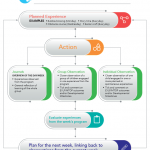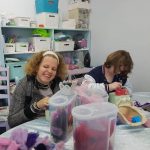It’s all in the timing
The EYLF planning cycle has been around for a while now, and I think the majority of us are pretty comfortable with the process of gathering evidence of what children know, can do and understand, and using that to plan meaningful experiences.
According to ‘Belonging, Being & Becoming‘ (p 17) we should be using ‘a variety of strategies to collect, document, organise, synthesise and interpret information’ we gather. And I think most of us are pretty good at this too, as we draw on a variety of observation styles (like learning stories, jottings, and anecdotal records) to document and interpret information about children’s learning.
But, I’m wondering if there is one underutilised, or even totally overlooked, observation style that has great potential in providing a rich picture of children’s learning: time samples. Time samples are often used by educators who take a developmental approach, and are useful for gathering information at regular intervals over a child’s day. This is particularly helpful when children are transitioning from one room to another within a service, or attending the service for the first time.
By taking regular observations, educators can collect valuable information about social interactions and dynamics during the whole day: an effective way of assessing how safe, secure and supported children are feeling in their new environment (Outcome 1: Children have a strong sense of identity).
Using EarlyWorks, educators can select time samples as an observation style, and then enter observations at regular intervals throughout the day. Annotated images can also be included in the observation to provide an even richer picture of the child’s transition.
Educators can share the time sample with families. Using family insights connections can be made between the home and service environment, ensuring children feel a sense of belonging during this transition, and can then ‘grow in confidence to explore and learn’ (EYLF, p 20).







